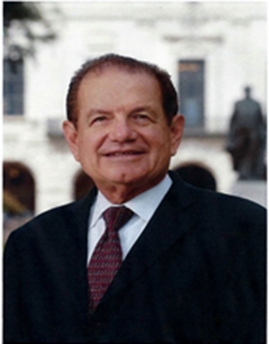IEEE CTS LMAG and CTCN 5.16.2024 meeting- Fusion Energy: Clean and Inexhaustible
This is a hybrid meeting starting at 6 PM CST at the Asian American Resource Center.
Energy is the core of civilization. The search for a clean, sustainable, unlimited source of energy has led to the development of fusion technology, an attempt to create on earth the conditions that power our sun. A power plant capable of producing more output than input power is ITER (International Thermonuclear Experimental Reactor), and is under construction in Cadarache, France. This talk will trace the beginnings, from concept to realization, of this first large scale truly international research project. The ITER agreement will also serve as a template for the creation of other large scale international scientific research projects.
Date and Time
Location
Hosts
Registration
-
 Add Event to Calendar
Add Event to Calendar
Loading virtual attendance info...
- 8401 Cameron Rd.
- Austin, Texas
- United States 78754
- Building: Asian American Resource Center
- Room Number: 8
Speakers
Raymond L Orbach of The University of Texas, Austin.
Fusion Energy: Clean and Inexhaustible
Energy is the core of civilization. The search for a clean, sustainable, unlimited source of energy has led to the development of fusion technology, an attempt to create on earth the conditions that power our sun. A power plant capable of producing more output than input power is ITER (International Thermonuclear Experimental Reactor), and is under construction in Cadarache, France. This talk will trace the beginnings, from concept to realization, of this first large scale truly international research project. The ITER agreement will also serve as a template for the creation of other large scale international scientific research projects.
Biography:
Dr. Raymond L. Orbach was Director of the Office of Science at the U.S. Department of Energy from March 14, 2002 until mid-2009,, and was sworn in as the Department of Energy's first Under Secretary for Science in June 2006. As the Department’s Chief Scientist, he was adviser to Secretary of Energy Samuel W. Bodman for science policy and programs, including basic and applied research ranging from nuclear energy to environmental clean-up of Cold War legacy sites to defense programs. He was responsible for planning, coordinating and overseeing the Energy Department's research and development programs, its 17 national laboratories and its science and engineering education activities. He began his academic career as a postdoctoral fellow at Oxford University and became an assistant professor of applied physics at Harvard University. He joined the faculty of the University of California, Los Angeles (UCLA) as an associate professor, and became a full professor in 1966. His research in theoretical and experimental physics has resulted in the publication of more than 240 scientific articles, and he is a fellow of the American Physical Society and the American Association for the Advancement of Science. From 1982 to 1992, he served as Provost of the College of Letters and Science at UCLA, and from 1992 to 2002 as Chancellor of the University of California, Riverside. He received a Bachelor of Science degree in Physics from the California Institute of Technology in 1956, and a Ph.D. in Physics from the University of California, Berkeley in 1960.
Email:
Address:Austin, Texas, United States, 78731
Agenda
The Life Members Affinity Group and Austin Consultants Network Affinity Group (CTCN) meets monthly. Except when meeting jointly with other groups, the CTCN meet on the third thursday each month. Meetings usually begin with informal networking from 4:00 to 4:10 p.m., followed by presentations from 4:15 to 5:30 p.m. by experts in topics of interest to IEEE Members. Our meetings are open to the public.


